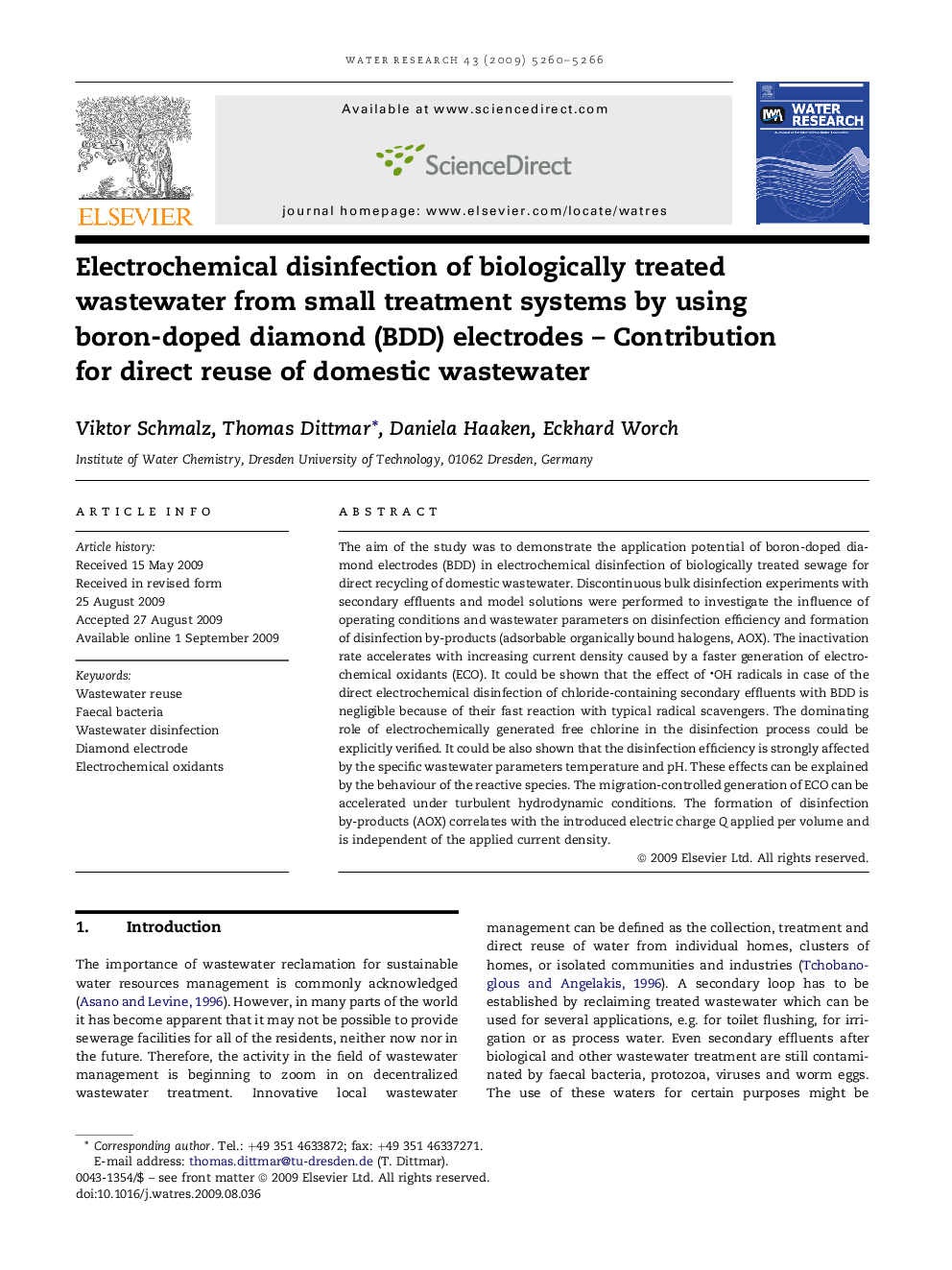| Article ID | Journal | Published Year | Pages | File Type |
|---|---|---|---|---|
| 4485391 | Water Research | 2009 | 7 Pages |
The aim of the study was to demonstrate the application potential of boron-doped diamond electrodes (BDD) in electrochemical disinfection of biologically treated sewage for direct recycling of domestic wastewater. Discontinuous bulk disinfection experiments with secondary effluents and model solutions were performed to investigate the influence of operating conditions and wastewater parameters on disinfection efficiency and formation of disinfection by-products (adsorbable organically bound halogens, AOX). The inactivation rate accelerates with increasing current density caused by a faster generation of electrochemical oxidants (ECO). It could be shown that the effect of OH radicals in case of the direct electrochemical disinfection of chloride-containing secondary effluents with BDD is negligible because of their fast reaction with typical radical scavengers. The dominating role of electrochemically generated free chlorine in the disinfection process could be explicitly verified. It could be also shown that the disinfection efficiency is strongly affected by the specific wastewater parameters temperature and pH. These effects can be explained by the behaviour of the reactive species. The migration-controlled generation of ECO can be accelerated under turbulent hydrodynamic conditions. The formation of disinfection by-products (AOX) correlates with the introduced electric charge Q applied per volume and is independent of the applied current density.
